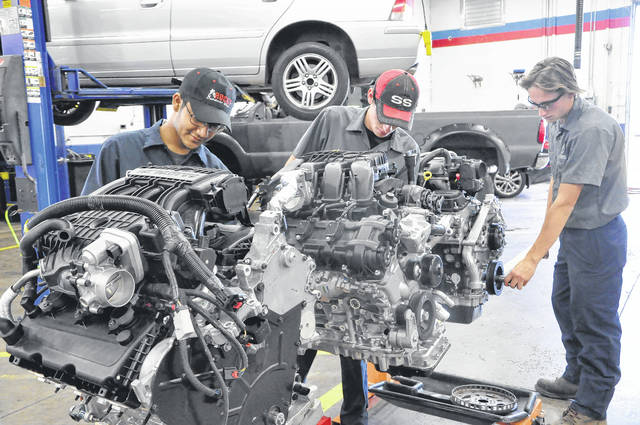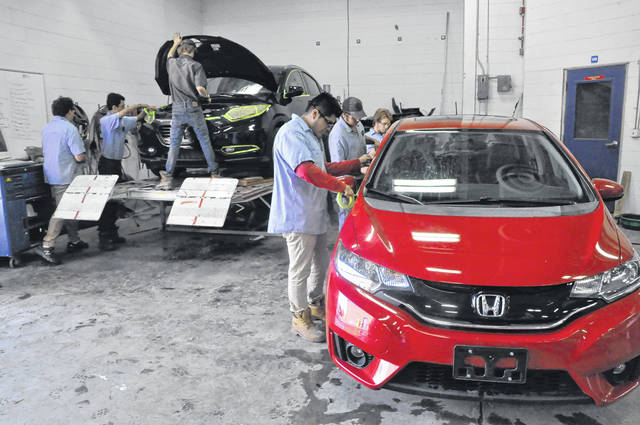

Students in the automotive and automotive collision technology programs at the Delaware Area Career Center have access to get even more hands-on training than ever before after Volkswagen donated three engines and Honda donated two cars for students to use for study and practice.
Robert Swonger, instructor of the automotive technology program, said he was recently contacted by the Volkswagen Learning Center which was interested in donating three engines and two trans-axles and had chosen the DACC.
Swonger said the engines are V6 Chrysler engines that were used in the Volkswagen Routan before the model was discontinued. He said the engines along with the two trans-axles are worth around $25,000.
“These are basically new engines,” Swonger said.
Swonger said he plans to have his automotive technology students disassemble the engine, learn what every part and piece does before having them reassemble the engine.
“Any monkey can take a car apart and any well trained monkey can put it back together, but neither of them will understand how it works,” Swonger said. “My goal is for the students to understand how the systems work so they can diagnose the concerns and not just take it apart.”
Swonger said students will spend weeks taking the engines apart and studying them. He said if Volkswagen hadn’t donated the engines, the students would instead be taking apart older engines that have already been disassembled numerous times. Swonger said he will retire some of the extremely worn out engines now that there are three new ones for students.
In the Automotive Collision Technology lab, students have gotten their hands on a 2015 Honda FIT and a 2016 Honda HRV after Honda reached out the DACC and asked if they would be interested in two cars for students to use for practice. Automotive Collision Technology Instructor David Finnegan said the students will remove and re-install parts of the car to learn how everything works.
“It’s nice for students to have something new to work on,” Finnegan said. Finnegan said his students are very good at working on older vehicles, but said the reality is that students would primarily be working on newer vehicles after they graduate.
Finnegan noted cars are made with different materials than they were 20 years ago and said it’s important for students to learn the differences.
For example, Finnegan said students can take apart the frame of the vehicle and learn how all the fasteners work.
“You can’t do that with a customer’s vehicle,” Finnegan joked.
Finnegan said Honda is very supportive of the DACC and vocational schools in general because they are always looking for new technicians.



